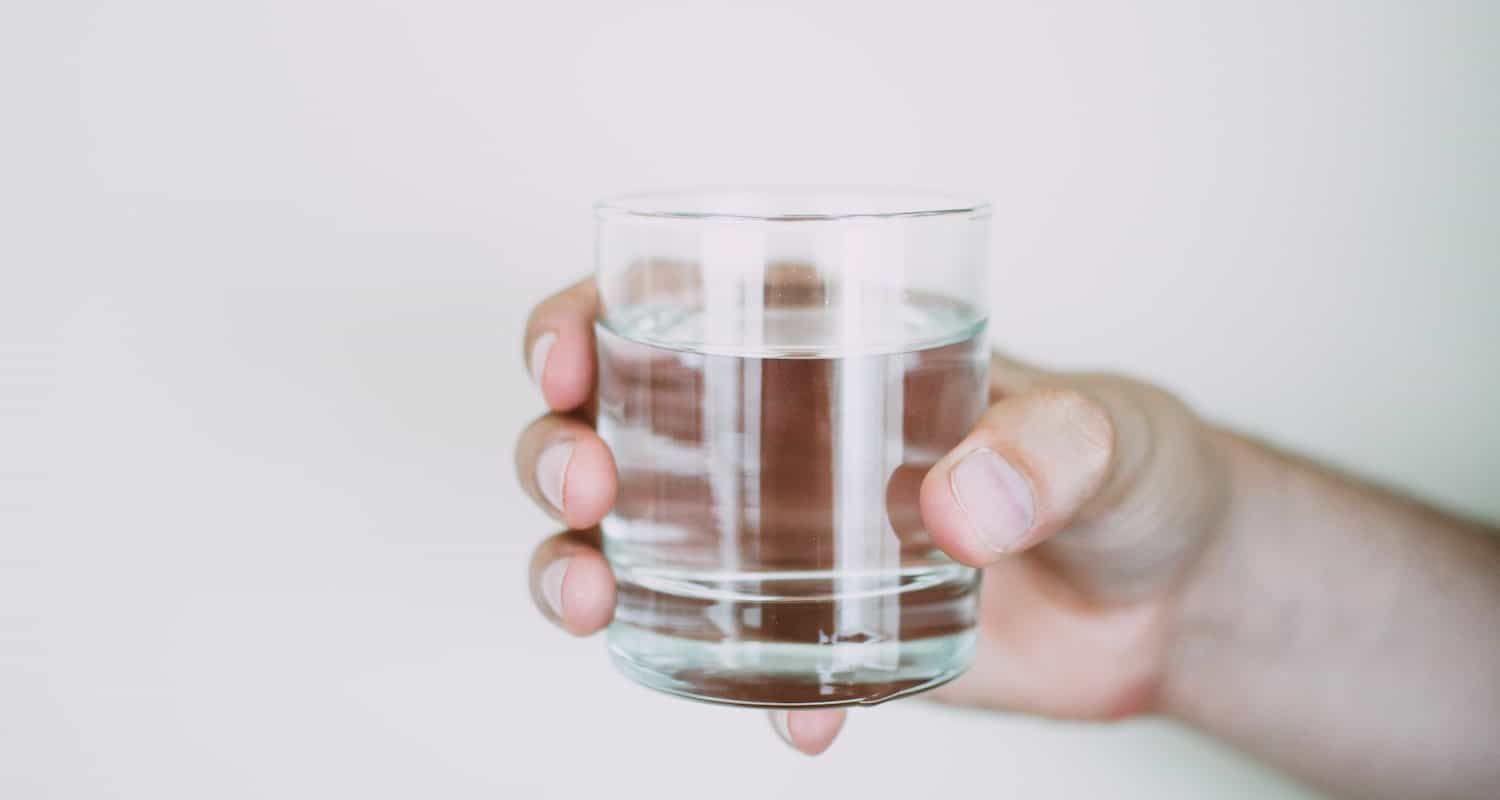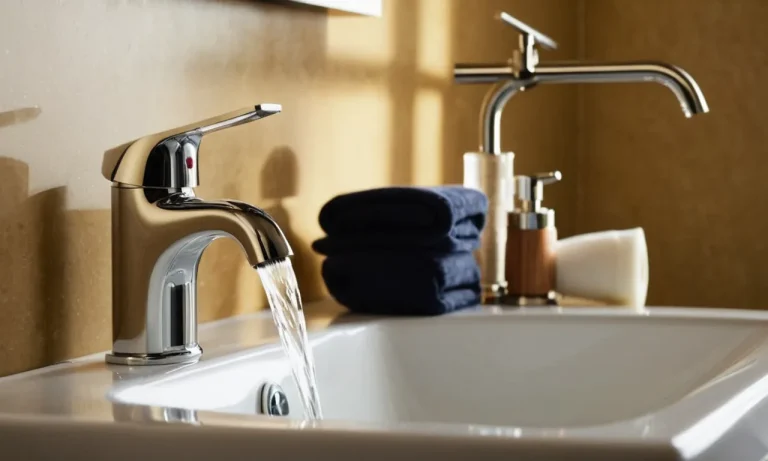Is Hotel Water Safe to Drink? A Comprehensive Guide
When you’re on vacation or a business trip, staying hydrated is crucial. But the question that often lingers in the minds of travelers is: Is hotel water safe to drink? With concerns about water quality and potential contaminants, it’s essential to understand the risks and precautions associated with consuming hotel water.
If you’re short on time, here’s a quick answer to your question: Hotel water is generally safe to drink, but it’s always wise to exercise caution and consider the specific circumstances of your location and accommodation.
In this comprehensive guide, we’ll delve into the factors that determine the safety of hotel water, explore the potential risks, and provide practical tips to ensure a safe and enjoyable stay. From understanding water treatment processes to identifying warning signs, we’ve got you covered.
Water Treatment and Regulations
Municipal Water Treatment
The water supplied to hotels typically comes from the local municipal water treatment facility. These facilities employ a multi-step process to purify water from natural sources such as rivers, lakes, or groundwater reserves.
The treatment process typically involves several stages, including sedimentation, filtration, and disinfection using chemicals like chlorine or ozone. The treated water is then distributed through a network of pipes to residential and commercial buildings, including hotels.
According to the Environmental Protection Agency (EPA), municipal water treatment plants in the United States are required to meet strict standards set by the Safe Drinking Water Act (SDWA). These regulations ensure that the water supplied to homes and businesses is safe for consumption and meets specific quality criteria for contaminants, bacteria, and other harmful substances.
Hotel Water Filtration Systems
While municipal water treatment facilities provide a baseline level of purification, many hotels take additional measures to further enhance the quality of their water supply. A common practice is the installation of on-site water filtration systems, which can remove residual impurities, improve taste, and reduce potential health risks.
These filtration systems can range from simple point-of-use filters attached to faucets or showerheads to more sophisticated whole-building systems that treat the entire water supply. Some hotels even employ advanced technologies like reverse osmosis or ultraviolet (UV) disinfection to ensure the highest levels of water purity.
According to a survey by the American Hotel & Lodging Association, approximately 75% of hotels in the United States have implemented some form of water filtration or treatment system. This proactive approach not only ensures guest satisfaction but also demonstrates a commitment to providing a safe and healthy environment.
Regulatory Standards and Compliance
In addition to municipal water treatment regulations, hotels must comply with a range of industry-specific standards and guidelines. Organizations like the International Association of Plumbing and Mechanical Officials (IAPMO) and the National Sanitation Foundation (NSF) establish rigorous criteria for water quality, plumbing systems, and water treatment equipment used in commercial settings, including hotels.
These standards cover various aspects, such as:
- Maximum contaminant levels for substances like lead, copper, and bacteria
- Proper installation and maintenance of water treatment systems
- Regular testing and monitoring of water quality
- Protocols for addressing water quality issues or contamination incidents
Many hotel chains and individual properties voluntarily adhere to these standards or seek independent certifications to demonstrate their commitment to providing safe, high-quality water to their guests.
For example, some hotels proudly display certifications like the NSF/ANSI 61 certification, which ensures that the water treatment systems and plumbing components used meet strict health and safety requirements.
By understanding the various water treatment processes, filtration systems, and regulatory standards in place, guests can feel confident that the water served in reputable hotels is generally safe for drinking and other purposes. However, it’s always a good idea to check with the hotel staff or consult local travel advisories for any specific water quality concerns in the area.
Potential Risks and Contaminants
While hotels strive to provide a comfortable and safe environment for their guests, the water quality in hotel rooms can sometimes be a cause for concern. Drinking water in hotels may harbor potential risks and contaminants that could pose a threat to your health.
It’s crucial to be aware of these risks to make informed decisions and take necessary precautions.
Waterborne Illnesses
One of the primary concerns regarding hotel water is the potential for waterborne illnesses caused by harmful bacteria, viruses, and parasites. According to the Centers for Disease Control and Prevention (CDC) website, waterborne pathogens can cause a range of illnesses, including gastrointestinal disorders, hepatitis, and even life-threatening diseases like cholera.
Some common waterborne illnesses include:
- Giardiasis, caused by the parasite Giardia intestinalis
- Cryptosporidiosis, caused by the parasite Cryptosporidium
- E. coli infections, caused by certain strains of the Escherichia coli bacteria
These pathogens can enter the water supply through various means, such as improper treatment, contamination from sewage, or cross-connections with non-potable water sources. While hotels generally follow strict water treatment protocols, lapses or breakdowns in the system can lead to contamination.
According to a study by the CDC, around 57% of waterborne illness outbreaks in the United States between 2009 and 2010 were associated with hotel settings.
Heavy Metals and Chemical Contaminants
Another potential risk associated with hotel water is the presence of heavy metals and chemical contaminants. These substances can leach into the water supply from various sources, including aging plumbing infrastructure, industrial activities, or natural geological formations.
Some common heavy metals and chemical contaminants found in water supplies include lead, copper, arsenic, and disinfection byproducts like trihalomethanes (THMs) and haloacetic acids (HAAs). Prolonged exposure to these contaminants can have adverse health effects, ranging from gastrointestinal issues to neurological problems and even an increased risk of cancer.
For instance, according to the Environmental Protection Agency (EPA), lead exposure can cause developmental delays in children and kidney problems in adults.
Plumbing Issues and Aging Infrastructure
The quality of water in hotels can also be impacted by plumbing issues and aging infrastructure. Older buildings with outdated plumbing systems may have corroded pipes or leaks, which can introduce contaminants into the water supply.
Additionally, stagnant water in pipes, especially in low-occupancy periods, can lead to the growth of harmful bacteria like Legionella, the causative agent of Legionnaires’ disease.
According to a CDC report, approximately 15% of waterborne disease outbreaks in the United States between 2009 and 2010 were associated with hotel settings, with Legionella being a significant contributor.
The report highlights the importance of proper water management practices, such as flushing stagnant water from pipes and maintaining appropriate water temperatures to prevent bacterial growth.
It’s worth noting that while these risks exist, many hotels take proactive measures to ensure water safety, such as regular testing, implementing water treatment systems, and adhering to local and national regulations.
However, it’s always advisable to exercise caution and consider alternative sources of drinking water, especially if you have concerns about the water quality in your hotel room.
Assessing Hotel Water Safety
When traveling, it’s essential to ensure that the water you’re consuming is safe and free from contaminants. Hotel water sources can sometimes be questionable, and it’s wise to take precautions before drinking directly from the tap.
Here are some steps you can take to assess the safety of hotel water:
Visual Inspection
The first step in evaluating hotel water safety is a visual inspection. Look for any signs of discoloration, cloudiness, or sediment in the water. Clear water doesn’t necessarily guarantee safety, but it’s a good starting point.
If the water appears murky or has an unusual color, it’s best to avoid drinking it until you’ve confirmed its safety.
Taste and Odor
Your senses can also provide valuable clues about the quality of hotel water. Take a small sip and pay attention to any unusual tastes or odors. Fresh, clean water should have a neutral taste and no noticeable smell.
If you detect a chlorine-like or metallic taste, it could indicate the presence of chemical contaminants or high mineral content. Similarly, an earthy or musty odor may signify bacterial or algal growth in the water supply.
Consulting Hotel Staff and Local Authorities
Don’t hesitate to ask the hotel staff about the safety of their water supply. Reputable establishments should be transparent about the source of their water and any treatment processes they employ. They may also provide bottled water as an alternative if there are concerns about the tap water.
Additionally, you can consult local authorities or resources like the CDC’s travel water safety guide to gather information about the water quality in the area you’re visiting.
If you have any doubts about the safety of the hotel water, it’s always better to err on the side of caution. Consider using bottled water for drinking and brushing your teeth, especially if you’re traveling to a region with known water quality issues.
According to a study by the World Health Organization, approximately 1.8 billion people globally use a drinking water source contaminated with feces, putting them at risk of contracting waterborne diseases like cholera, dysentery, and typhoid fever.
Remember, your health and well-being should be the top priority when traveling. Don’t hesitate to take the necessary precautions to ensure you’re drinking safe water during your hotel stay. A little vigilance can go a long way in preventing potential health issues and ensuring an enjoyable and worry-free trip.
😊
Precautions and Alternatives
While some hotels provide safe drinking water, it’s always better to err on the side of caution when it comes to your health. Here are some precautions and alternatives to consider:
Boiling and Filtering Water
If you’re unsure about the safety of the tap water in your hotel room, one option is to boil it. According to the Centers for Disease Control and Prevention (CDC), bringing water to a rolling boil for at least one minute can kill harmful bacteria, viruses, and parasites.
However, boiling won’t remove chemical contaminants like lead or chlorine. For added protection, consider using a water filter designed for travel. Portable filters can effectively remove harmful contaminants, making the water safer to drink.
Bottled Water Options
Many hotels offer complimentary bottled water, which can be a convenient and safe alternative to tap water. However, it’s important to note that not all bottled water is created equal. Look for reputable brands and check the seal to ensure the bottle hasn’t been tampered with.
If you plan to purchase bottled water, check the expiration date and avoid bottles that have been exposed to excessive heat or sunlight, as this can compromise the quality of the water.
According to a study by the International Bottled Water Association, the average American consumed around 42 gallons of bottled water in 2020. While bottled water can be a safe option, it’s important to be mindful of the environmental impact and consider reusable water bottles when possible. 😊
Staying Hydrated with Other Beverages
If you’re concerned about the safety of the water in your hotel, you can stay hydrated by opting for other beverages like juices, teas, or sodas. However, it’s important to note that some of these options may contain added sugars or artificial sweeteners, which can have negative health effects if consumed in excess.
👍
When in doubt, it’s always a good idea to ask the hotel staff about the quality of the tap water and whether it’s safe to drink. They may be able to provide you with information about the water source and any treatment processes used.
Staying hydrated is crucial for your health, so it’s better to be safe than sorry when it comes to drinking water while traveling.
Special Considerations for Travelers
Immunocompromised Individuals
If you have a weakened immune system due to conditions like HIV/AIDS, cancer treatment, or organ transplants, you may be at a higher risk of contracting waterborne illnesses from drinking hotel water.
The Centers for Disease Control and Prevention (CDC) recommends that immunocompromised individuals take extra precautions when traveling, such as drinking only bottled or boiled water. Even in developed countries with generally safe tap water, hotel water systems can sometimes harbor harmful bacteria like Legionella, which can cause a serious type of pneumonia called Legionnaires’ disease.
😷 So it’s better to be safe than sorry!
Pregnant Women and Young Children
Pregnant women and young children are also considered more vulnerable to waterborne illnesses due to their weaker immune systems. According to the World Health Organization (WHO), diarrheal diseases caused by contaminated water are a leading cause of death in children under five years old, accounting for an estimated 525,000 deaths each year.
👶 Therefore, it’s generally recommended that pregnant women and parents of young children avoid drinking hotel water, especially in areas with questionable water quality.
International Travel and Developing Countries
When traveling internationally, particularly to developing countries, the risk of consuming contaminated water increases significantly. Many countries lack proper water treatment facilities and infrastructure, making their tap water unsafe for consumption.
The CDC advises travelers to avoid drinking tap water, including hotel water, in most developing countries. Instead, they recommend sticking to bottled water, boiled water, or water treated with a reliable purification method.
🌍 It’s also a good idea to check travel advisories and consult with your healthcare provider before your trip.
Even in some developed countries, the water quality standards may not be as stringent as those in your home country. For example, a study by the Food & Water Watch found that 67% of hotels in the U.S. and Canada had water samples that violated safety standards for bacteria or lead contamination.
😮 So it’s always better to be cautious and do your research before drinking hotel water, especially when traveling abroad.
Conclusion
Ensuring safe drinking water is a crucial aspect of any travel experience. While hotel water is generally safe to drink, it’s essential to remain vigilant and take necessary precautions based on your specific circumstances and location.
By understanding water treatment processes, potential risks, and assessment methods, you can make informed decisions about consuming hotel water. Additionally, exploring alternatives like bottled water or boiling and filtering tap water can provide added peace of mind.
Remember, staying hydrated is vital for your health and well-being, especially when traveling. By following the guidelines outlined in this comprehensive guide, you can enjoy your hotel stay with confidence, knowing that you’re taking the necessary steps to ensure safe hydration.







